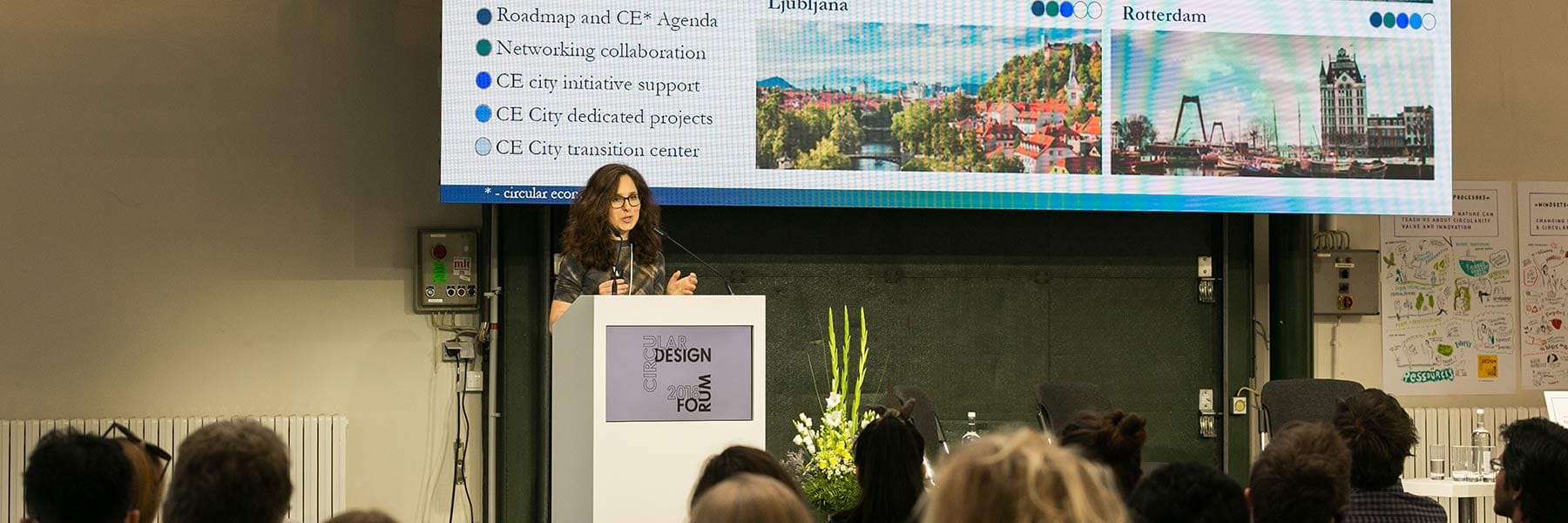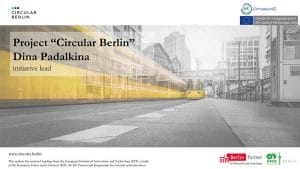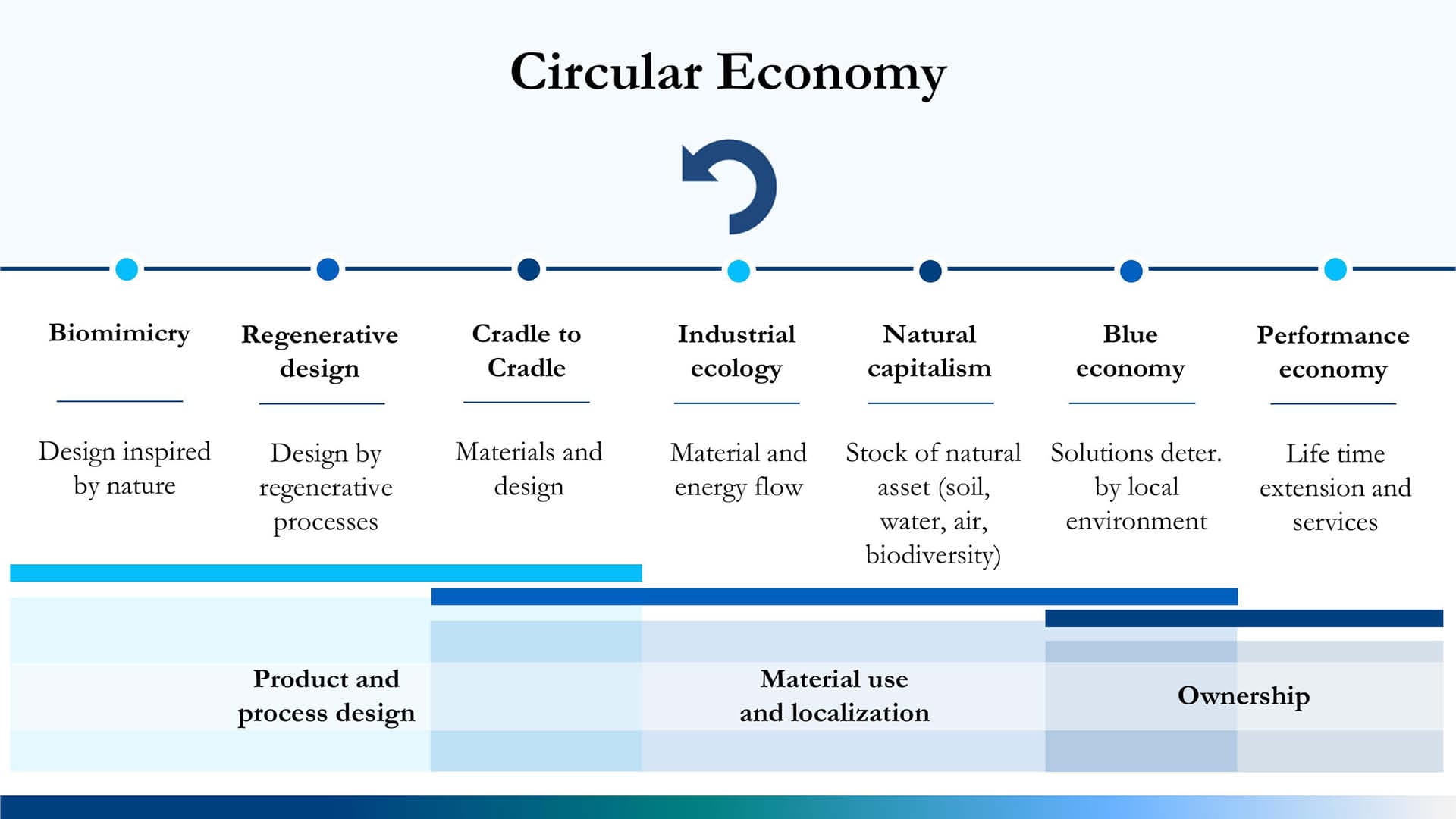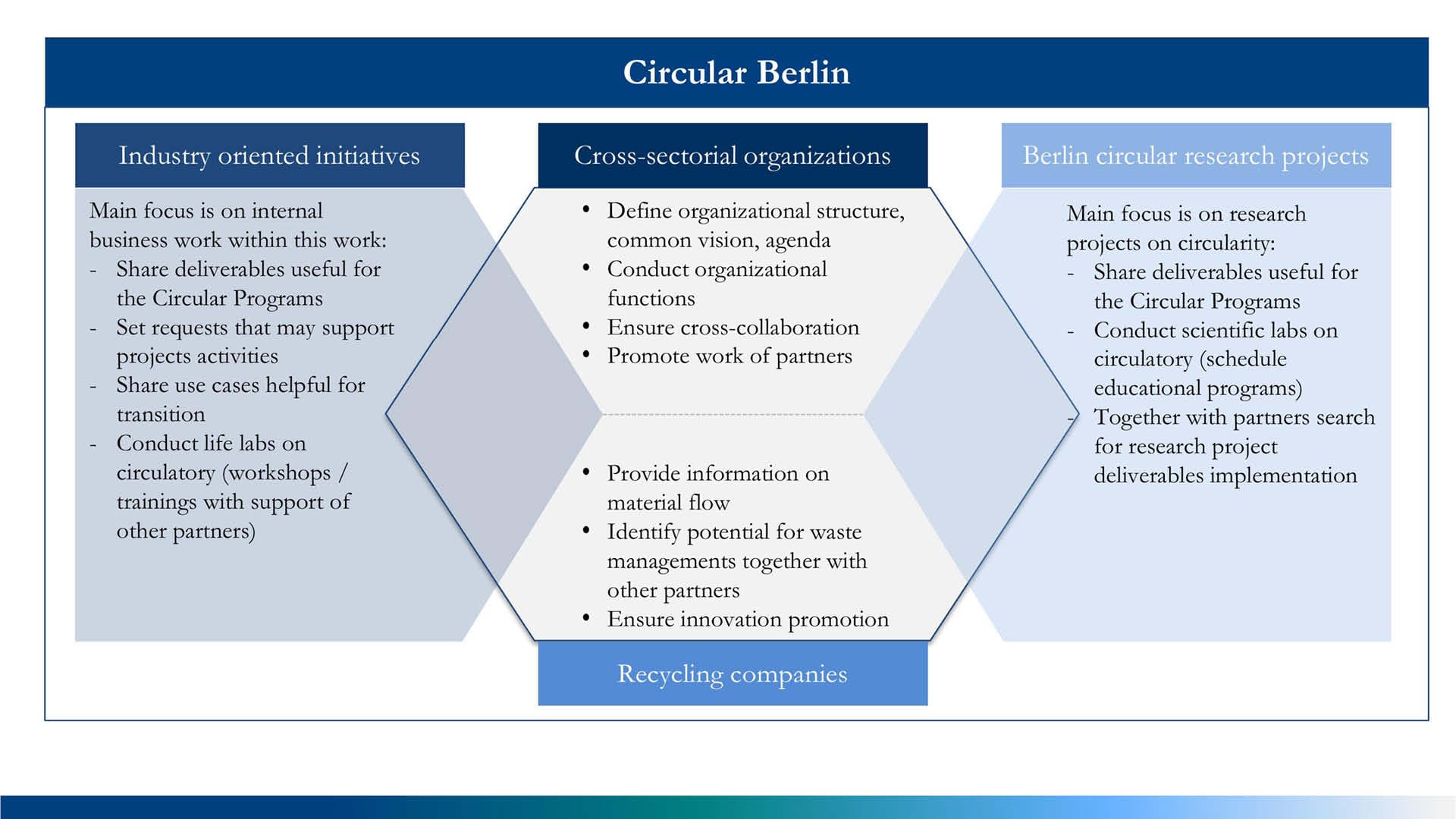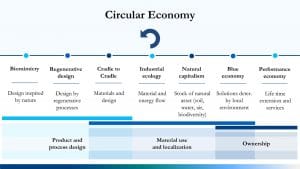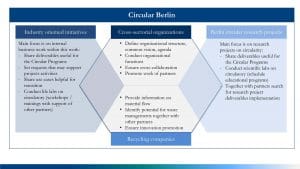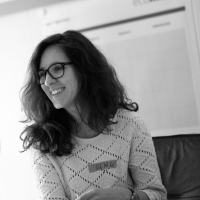The Circular Berlin project started as an exploratory study at the start of 2018, with the idea to establish a coordinated network that connects key stakeholders in order to have more influence on local policies and regulations in the field of Circular Economy.
FUNDER
EIT Climate-KIC
DATE
April-August 2018
The challenge
There is currently no centrally coordinated approach in place in Berlin, which is typical for the city, being both a state and a municipality. The circular economy landscape in Berlin is shaped by a variety of grassroots initiatives and several decentralised testbeds including research projects.
Our approach
The project was divided into three phases:
- Desk research exploring Berlin’s circular economy actor landscape, including the analysis of existing city strategies, in which circular economy could potentially be incorporated, as well as identifying the main circular economy drivers and relevant city needs
- In-depth interviews and surveys with identified actors to determine the degree of readiness to collaborate, and a vision for a Berlin-wide circular economy strategy
- Initiation of a workshop series to bring the circular economy topic to specific sectors including food, fashion, secondary materials, and construction.
The outcomes
The main priorities identified for a CE transformation in Berlin are: product reuse, waste prevention, improvement of eco-procurement including material use, the link between circular economy and energy efficiency, eco-construction, food and bio waste, and specific location based actions.
22 interviews were conducted and an online survey was completed by 28 different local actors, including district authorities. The main outcomes of the interviews were the desire for intensified collaboration among the circular economy stakeholders and an improved visibility and representation in the city. There was a strong interest in the topics of understanding city material flows that go beyond waste flows, understanding cross-industry practices, a platform within the city to promote the topic, and increased information and knowledge sharing.
Further steps
The project contained four sector-specific multi-stakeholder workshops. The sectors chosen were: built environment, textile and fashion, food and agriculture, materials and products as determined in the stakeholder analysis.

